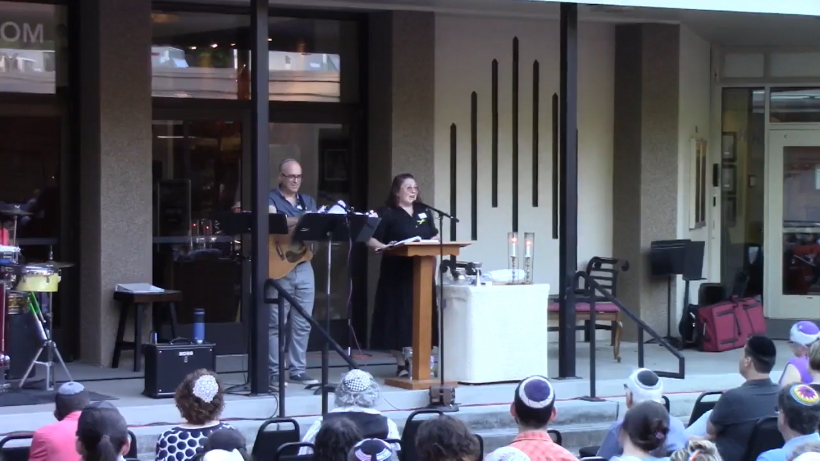One of my favorite parts of teaching is the check-in that precedes the work of the day. When I was in the classroom daily, I would start with a brief check-in question to see where students were at, what was going on, and what support they might need. When I shifted to the pulpit, I started using this technique differently, but still find it equally important.

Whatever group you’re addressing, whether it’s a class, a congregation, or a team meeting, ask how everyone is. It shows you care as a teacher and leader. If someone is having a bad day, I want to know. That might change the way they participate in the session. At the same time, if someone is in a phenomenal mood, that has an effect on the learning as well. You never really know until you ask, and this I learned from the Torah.
This week we read Parshat Pinchas, which begins with the story of Pinchas (identified as Aaron’s grandson) and the extreme action he took toward those who defied the prohibition against idolatry. Then we move to the daughters of Zelophechad (Joseph’s great-great-great-grandson), who want to inherit land after their father’s death because he had no sons. Then Joshua is appointed Moshe’s successor, and we end with the sacrifices we are to make for Rosh Chodesh and the holidays.
What struck me in reading the text this week is that we once again begin with a census. Didn’t the book of Bamidbar (Numbers) begin with a census? Why do we need another one? The answer is simple: it’s a check-in. Each time we read about a census, that’s our clue that time has moved on, that people have changed, and that a check-in, or a check-on, is in order. Specifically at this point in the narrative, we know that all the Israelites who left Egypt were to die before they made it to Israel, and that requires a pretty significant status check.
The repeated check-in might seem frivolous, but as the parshah teaches us, we receive lists for every holiday and for each month. The purpose is to connect us to the moment. In this case, the census is to remind us of who we are, where we’ve been, and how we’ve grown and changed. Small talk can make a big impact, and sometimes it’s these exact types of questions that remind us to pay attention to those around us.



